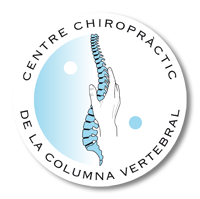Problems of… Ankylosing Spondylitis
Ankylosing Spondylitis is a type of arthritis that causes inflammation in the spine. Although the vertebrae are the ones mainly involved, it can also affect the hips, the shoulders, the heels, the ribs and the joints.
Ankylosing Spondylitis and Chiropractic
In some cases, the heart, the lungs and even the eyes may be involved. If left untreated, the condition can progress and cause chronic pain that can be intense with increased inflammation of the spine.
Although it is believed that genetics is key in the development of ankylosing spondylitis, the exact cause has yet to be determined.
Ankylosing Spondylitis cannot be cured, but it can be slowed down with chiropractic adjustment. Symptoms can be treated with chiropractic to relieve stiffness and pain, as well as to delay and prevent spinal deformity, among other complications. Many patients with this condition have exceptional results with chiropractic treatment. It is non-invasive and does not have the unpleasant side effects of many medications.
Problems caused by Ankylosing Spondylitis
Advanced cases can provoke new bone formations in the spine, causing conditions such as dorsal hyperkyphosis, sacroiliac joint lock, exaggerated formation of osteophytes and syndesmophytes, little by little blocking all the joints and the spine, causing loss of mobility.
Step by step treatment
Chiropractors recommend chiropractic treatment in the non-acute inflammatory stage of ankylosing spondylitis. The sooner it is diagnosed and treated, the better results will be obtained. Once the condition has progressed too far to an acute joint ailment, other treatments have to be added. Chiropractic adjustments and some exercises are used to relieve symptoms and they notably help to regain mobility and prevent the progression of the disease by greatly improving the quality of life of the patient.
CONTRAINDICATED TO SIT
In the first 10 to 15 minutes after your visit it is contraindicated to sit down.
During this period of time it is necessary to walk to mobilize the joints that we just release and walking also facilitate better joint lubrication and nutrition of the intervertebral discs.
IN THE NEXT 24 HOURS
During the next 24 hours following the first sessions avoid any excessive effort.
Otherwise, the effectiveness of the adjustment received will decrease.
BEFORE AND AFTER
Before and after every visit, avoid all kinds of tension.
Both physical and mental. The more relaxed you are the more benefit you will get from your treatment.
THE APPOINTMENTS
The set appointments must be respected.
They have been established to obtain the best results.
AFTER AN ADJUSTMENT
The sensations that each person may experience after an adjustment may vary without affecting the result and benefit of the treatment in the medium and long term.
After an adjustment, you may experience a feeling of relaxation, having a lot of energy, general well-being, disappearance or relief of symptoms, soreness or pain.
You may sometimes even experience discomfort since the body has to adapt to the new posture and position.
Links of interest
Articles about ankylosing spondylitis



